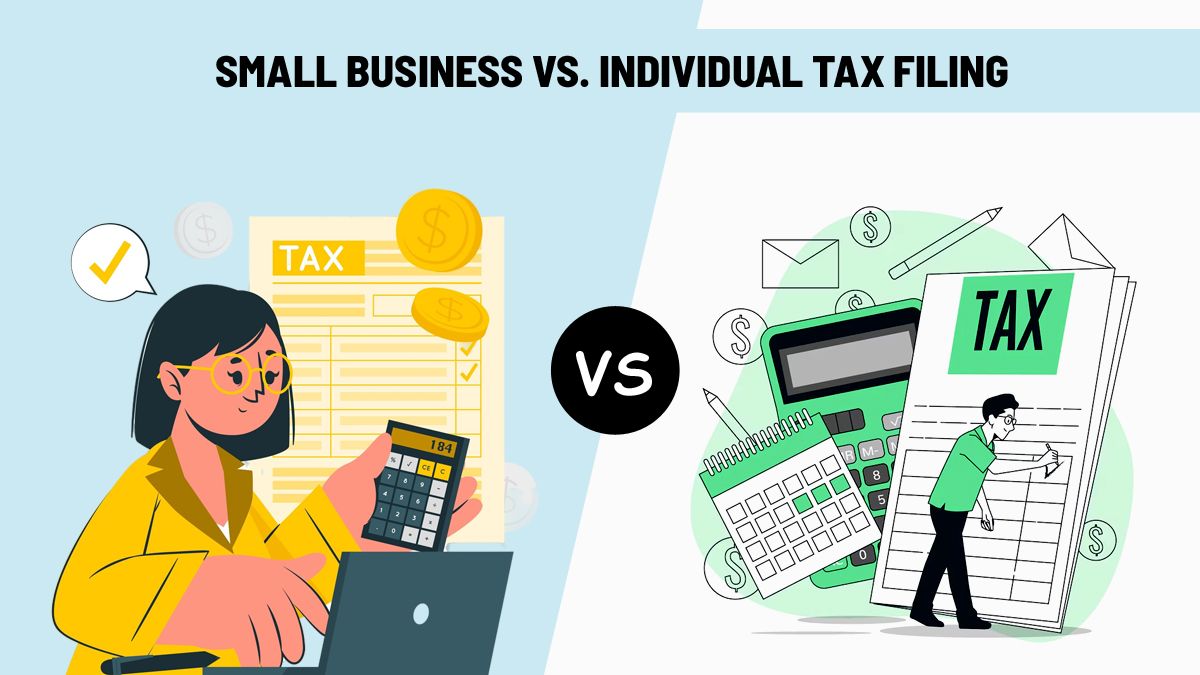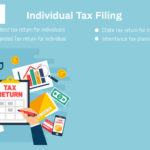Understanding taxes can be complicated, whether you’re filing as an individual or for a small business. Here’s a quick post that sheds light on the subject: small business vs. individual tax filing. Knowing the differences between these two can help you manage your finances better and ensure you meet legal requirements without paying more than you need to. Doesn’t that sound enticing?
Dive right into this post to know the difference and why you should opt for accounting tax services for both.
What is Small Business Tax Filing?
Small business tax filing means handling the taxes for a business entity, such as a corporation, partnership, or sole proprietorship. Unlike personal taxes, business taxes can include income taxes, payroll taxes, and perhaps sales taxes, depending on the business type and location. These filings take into account the revenue the business earns and the expenses it can deduct, such as office supplies, salaries, and travel.
Small business owners should focus more on growing their businesses rather than getting overwhelmed by tax issues. And why not? Growth is essential for small businesses. It’s not just about paying taxes; it’s about understanding which expenses can reduce your taxable income, how to reinvest profits effectively, and how to plan for future growth. This strategic approach to handling business finances can influence the company’s success.
What is Individual Tax Filing, Anyway?
Individual tax filing, on the other hand, deals with the income an individual earns and the taxes they must pay on that income. This could include wages from a job, earnings from freelance work, or income from investments. The process involves calculating income, subtracting deductions (like mortgage interest or charitable donations), and figuring out the tax rate that applies to the remaining amount.
Individuals’ goal is to keep as much of their hard-earned money as possible. This means taking advantage of all possible tax deductions and credits for which they are eligible, such as higher education expenses or tax breaks for retirement savings.
The Advantages of Hiring a Tax Professional
The tax world can be tricky and frustrating for small businesses and individuals. This is why many choose to hire a tax professional. A good accounting and tax service provider can remove the stress and confusion of tax filing. They have the expertise to ensure that you or your business complies with the law while taking full advantage of all tax benefits.
For small businesses, a tax professional can be invaluable in providing advice on financial decisions and tax planning strategies. They can handle the complicated aspects of business taxes, allowing business owners to focus on what they do best—running their business. This can lead to better growth and profitability.
For individuals, tax professionals can help maximize returns by identifying all the potential deductions and credits that reduce the overall tax burden. This means individuals can keep more of their income for personal use, savings, or investment. Think of better ways to spend your money! But, before that, hire accounting and tax services.
Summing Up
Whether you’re a small business owner or filing your personal taxes, understanding and managing your tax obligations is a must. By focusing on growth and letting a tax professional handle the complexities of tax laws, small businesses can not just survive but thrive.
Similarly, individuals can ensure they’re not paying more than required by taking advantage of tax breaks. Hiring a tax expert might seem like an added expense, but the savings and peace of mind they bring often outweigh the overall cost. Remember, when it comes to taxes, both knowledge and expert help are essential to keeping more of your money. It’s time to make a smart move!


